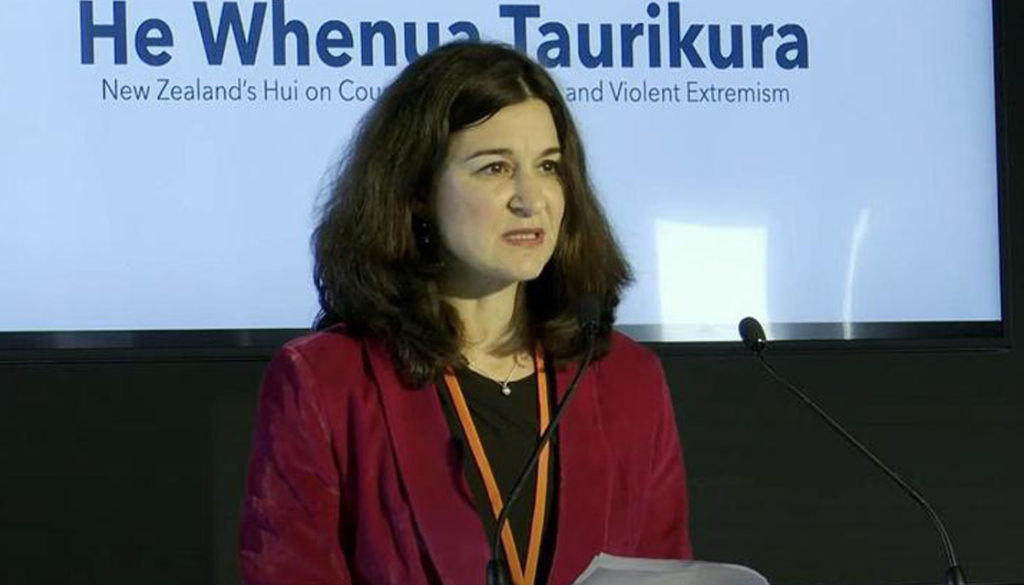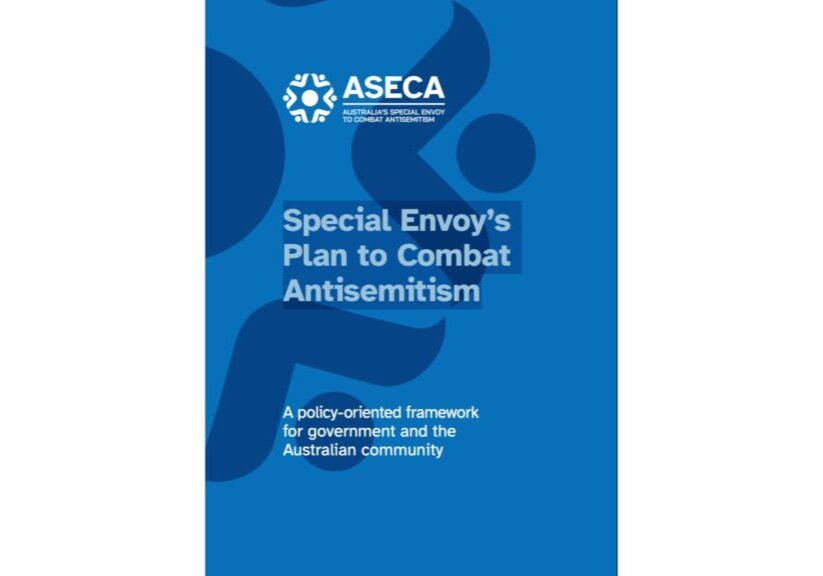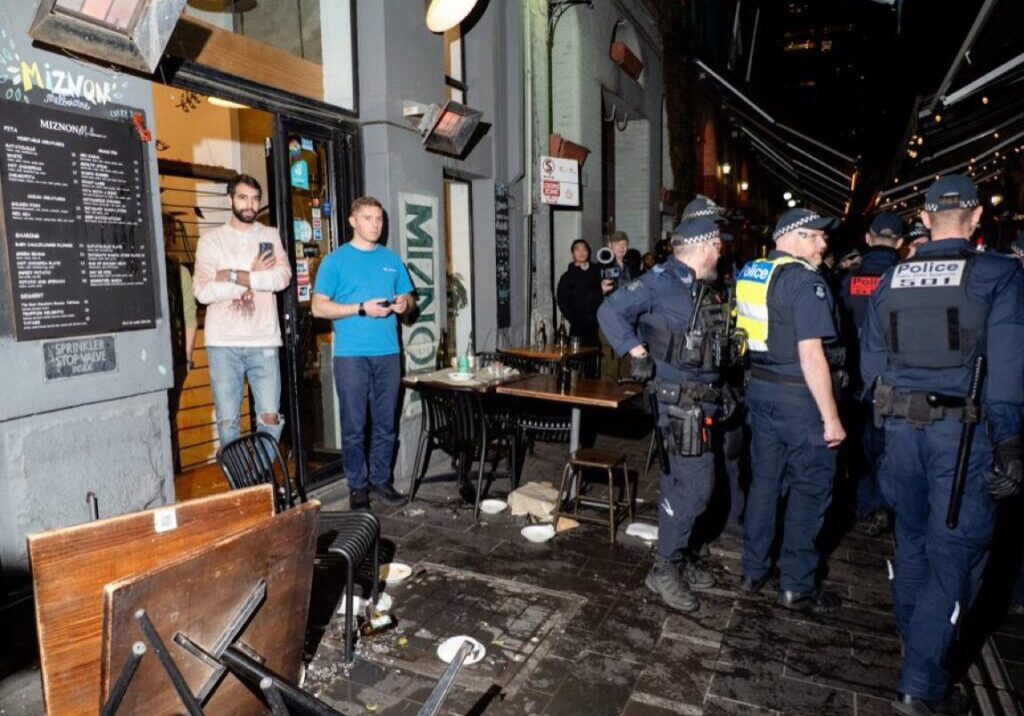Australia/Israel Review
AIR New Zealand: A safe haven no more
Jun 30, 2021 | Miriam Bell

My grandfather, a refugee from Czechoslovakia, used to say that New Zealand is a safe place for Jews, but don’t make the mistake of thinking there is no antisemitism around, because there is. Over the years, I’ve seen examples of that hidden antisemitism come to the surface.
Neo-Nazi skinhead characters were omnipresent in the late 1980s and early ‘90s.
There have been a series of desecrations of Jewish cemeteries, including one in Wellington in 2004 where 92 graves were damaged and a chapel burnt down. Last year, Temple Sinai (again in Wellington) was graffitied with swastikas and the word “Heil”.
And there’s always been a particular level, and tone, of vitriol that emerges when the situation between Israel and the Palestinians boils over into military conflict, sometimes spilling over into clear antisemitism.
Yet these hints of antisemitism did not shake my belief that New Zealand was a safe haven, largely insulated from the extremes of anti-Jewish sentiment evident in other countries. But that has changed in the wake of the most recent Israel-Gaza conflict.
There can be no doubt that antisemitism in New Zealand increased. While there have not been the sorts of violent attacks on Jews seen recently in the United States and Europe, a particularly high number of antisemitic incidents were recorded in May, the Jewish Council said.
In 2020, the Council recorded 33 antisemitic incidents, the highest number since records began in 1990. But in May alone it recorded 16 incidents, ranging from targeted antisemitic abuse of Jewish students online to a man giving the Nazi salute outside a synagogue.
NZ Jewish Council spokesperson Juliet Moses said those incidents did not include antisemitic social media posts from New Zealanders, but there was also a major increase in those:
“Not only did the quantity of social media hate increase, but so did the level of vitriol… there have been multiple expressions of support for terrorists as well as repetition of age-old tropes about Jews controlling politics and/or the media.”
According to Massey University Professor Paul Spoonley, an expert on far-right extremism, antisemitism on the far-right has been on the rise since around 2016. The recent Israel-Gaza conflict intensified that trend, he said.
But there’s an elephant in the room which many New Zealanders appear reluctant to acknowledge. While antisemitism on the right has increased, so too has antisemitism on the left.
During the conflict, this was evident in the social media vitriol. But perhaps the most glaring public example was when Green Party MP Ricardo Menéndez March tweeted “from the river to the sea, Palestine will be free”, along with photos of himself and two other Green MPs at a pro-Palestine rally.
This is an extremist slogan used by Hamas supporters, well-known as a call for the destruction of Israel and the expulsion of Jews from the region. Moses noted that even if the Green MPs did not know this initially, after it was pointed out to them they still chose to double down and repeat it.
The Green MPs were not alone in their apparent ignorance of, or disregard for, the ongoing complexities of the Israel-Gaza conflict.
For example, in a segment on “The Project”, presenter Kanoa Lloyd described the conflict as “a bit like colonisation”. This prompted Holocaust and Antisemitism Foundation of Aotearoa New Zealand co-founder Sheree Trotter to write an open letter to Lloyd explaining why it wasn’t. She did not receive a response.
Trotter said popular discourse is increasingly viewed through the lens of power relationships, which influenced reporting of the conflict with Gaza: “The Palestinians had less sophisticated weapons and there were more Palestinian victims – therefore Israel was the bad guy.
“In the New Zealand context, it’s very tempting to try to superimpose the local history onto Israel: Palestinians are seen as the indigenous people who were colonised and dispossessed by a foreign power.”
The fact the backlash seemed more severe following this conflict may be because New Zealand is going through a process of rethinking its own history, Trotter said.
This “anti-Zionist” backlash seems to have continued post-conflict. The most disturbing example occurred at a counter-terrorism hui (a Maori word for social gathering or assembly) held in Christchurch in mid-June.
Moses was on a panel at one session and made a statement calling for diversity, tolerance and peace. In the speech, she said that all forms of terrorism should be condemned and referenced a pro-Hezbollah rally held in Auckland in 2018 as part of this call.
This prompted a handful of people to walk out in protest with shouts of “Free Palestine”. It was reported as a “mass walkout”, although the vast majority of the 300 people in attendance stayed put.
Moses was accused of Islamophobia and racial insensitivity by the usual suspects, including Green MP Golriz Ghahraman, while some questioned why she was allowed to speak at the hui at all.
The fact the Jewish community faces threats from both the right and the left is often overlooked. The result is that it certainly doesn’t feel quite as safe to be Jewish in New Zealand as it once did.
Tags: Anti-Zionism, Antisemitism, Israel, New Zealand






